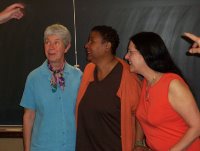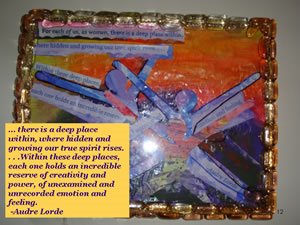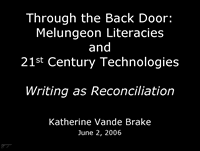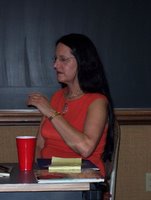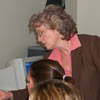Article by bell hooks

Prior to the Writing for Reconciliation Conference, the Shambala Sun contacted the conference planners, saying, "It is an auspicious coincidence that bell hooks graces the cover of the July 2006 issue of Shambhala Sun magazine, with a feature interview and an article by bell entitled Toward a Worldwide Culture of Love." They had hoped to provide copies of the article to conference participants, but the logistics of getting the article to Berea in time prohibited that. However, we are able to give you this article electronically.
As with many of our plenary speaker's writings, Toward a Worldwide Culture of Love is autobiographical to some extent. It traces thirty years of meditations on love, power, and Buddhism, and concludes it is only love that transforms our personal relationships and heals the wounds of oppression.
"The practice of love," says bell hooks, "is the most powerful antidote to the politics of domination."
Click Here or on the image or title above to read the article. Right click and choose Save Target As to download the article to your computer.

